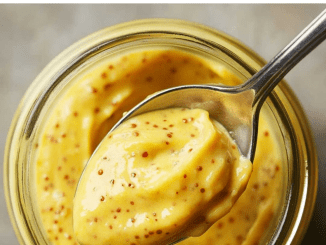A stuffy nose, or nasal congestion, can be downright annoying. It can make breathing feel like a chore, disrupt your sleep, and make you feel miserable. If over-the-counter medications like Dayquil aren’t doing the trick, you’re probably on the hunt for effective home remedies to get rid of that persistent congestion. Fortunately, there are plenty of natural solutions that many people swear by for clearing up a blocked nose.
Understanding What Causes a Stuffy Nose

Before we get into the remedies, it’s helpful to understand what causes a stuffy nose. Nasal congestion happens when the blood vessels in your nose become inflamed and the nasal tissues swell, blocking airflow. Common culprits include:
- Colds and flu: Viral infections often cause temporary nasal congestion.
- Allergies: Triggers like pollen, dust, or pet dander can cause allergic reactions, leading to a stuffy nose.
- Sinus infections: Infections in the sinuses can lead to inflammation and persistent congestion.
- Environmental factors: Dry air, smoke, and pollution can irritate nasal passages.
In some cases, nasal congestion might last longer due to chronic conditions or structural issues, such as a deviated septum. Identifying the underlying cause can help in finding the most effective treatment.
Video : How to get rid of a stuffy nose instantly and fast
Why Over-the-Counter Medications Don’t Always Work
You might wonder why medications like Dayquil aren’t always effective against a stuffy nose. While over-the-counter decongestants provide temporary relief, they often don’t address the root cause, especially if allergies or sinus infections are at play. Additionally, using decongestants for extended periods can lead to “rebound congestion,” where symptoms return worse than before. Understanding these limitations can make home remedies a great alternative to try.
1. Steam Inhalation: A Simple, Soothing Solution
One of the easiest and most effective remedies for a stuffy nose is steam inhalation. Inhaling steam helps loosen up mucus, clears nasal passages, and reduces inflammation.
To do a steam inhalation at home:
- Boil some water and pour it into a bowl.
- Drape a towel over your head and lean over the bowl, trapping the steam.
- Inhale deeply for 5-10 minutes.
For an added boost, you can add a few drops of eucalyptus or peppermint essential oil to the water. These oils have natural decongestant properties and can provide an extra layer of relief.
2. Saline Nasal Sprays: Gentle Hydration for Blocked Noses
Saline nasal sprays are a gentle way to moisturize and clear out mucus from the nasal passages. These sprays help thin the mucus, making it easier to expel, and they reduce inflammation without the side effects associated with medications.

You can find saline sprays at most drugstores, or you can make your own by mixing a teaspoon of salt in a cup of warm, distilled water. Rinsing your nose with a saline spray a few times a day can help maintain hydration and reduce congestion.
3. Essential Oils: Nature’s Decongestants
Essential oils like eucalyptus, peppermint, and tea tree oil have natural anti-inflammatory and decongestant properties. They can help open up the nasal passages and make it easier to breathe. Here’s how you can use them:
- Diffuser: Add a few drops of essential oil to a diffuser and let the aroma fill the room.
- Steam Inhalation: Add a drop of essential oil to your steam inhalation for a more powerful effect.
- Topical Application: Mix a drop or two of essential oil with a carrier oil (such as coconut oil) and rub it on your chest.
These oils are potent, so remember to use them sparingly and never apply undiluted essential oils directly to the skin.
4. Stay Hydrated: Water, Tea, and Warm Broths

Drinking plenty of fluids is essential when dealing with nasal congestion. Staying hydrated helps thin mucus, making it easier to drain from the nasal passages. Warm drinks like herbal teas or broths can be especially soothing and provide some relief from the discomfort.
Some of the best options include:
- Ginger tea: Known for its anti-inflammatory properties.
- Peppermint tea: Contains menthol, which can help open up nasal passages.
- Chicken soup or warm broths: These are both comforting and hydrating.
Aim to drink throughout the day to keep your body and nasal passages hydrated.
5. Humidifiers: A Breath of Fresh, Moist Air
Dry air can worsen nasal congestion, especially in the winter months when indoor heating can dry out the air in your home. Using a humidifier can add moisture to the air, which helps keep nasal passages from drying out and becoming irritated.
Running a humidifier in your bedroom at night can improve airflow and make breathing easier. Just be sure to clean it regularly to prevent mold and bacteria from accumulating.
6. Adjust Your Diet: Foods to Eat and Avoid

Believe it or not, certain foods can impact nasal congestion. For instance:
- Spicy foods: Spicy ingredients like chili peppers can cause a temporary thinning of mucus, providing brief relief from congestion.
- Ginger and garlic: Both have anti-inflammatory properties and can boost your immune system.
- Avoid dairy: Some people find that dairy products increase mucus production, so you might want to limit your intake if you’re feeling congested.
Eating a balanced diet with plenty of fruits, vegetables, and omega-3 fatty acids can also support your immune system and reduce inflammation.
7. Herbal Teas: Soothing Sips to Clear Your Nose
Herbal teas, such as chamomile, ginger, and peppermint, are excellent for easing nasal congestion. These teas have natural anti-inflammatory properties, and the warm liquid can help loosen mucus. Here are a few teas to try:

- Ginger tea: Reduces inflammation and soothes the throat.
- Peppermint tea: Contains menthol, which acts as a natural decongestant.
- Chamomile tea: Known for its soothing effects, helping you relax and breathe easier.
Sipping on herbal tea can also provide additional hydration, helping you recover faster.
When to See a Doctor for Persistent Congestion
While home remedies are effective, sometimes nasal congestion can persist and indicate a more serious issue. If your congestion lasts more than a week or is accompanied by high fever, facial pain, or severe headache, it’s a good idea to consult a healthcare professional. Chronic or recurring congestion might be a sign of allergies, sinusitis, or other underlying health conditions that require medical treatment.
Video : 30 Seconds Drains Sinus & Clears Stuffy Nose! Dr. Mandell
Conclusion: Finding the Best Remedy for Your Stuffy Nose
Living with a stuffy nose can be frustrating, but finding relief doesn’t always require medication. Exploring these home remedies—whether it’s steam inhalation, essential oils, hydration, or diet adjustments—can help you find natural, effective relief. The key is to identify what works best for you and remember that consistency is crucial when it comes to home remedies.
By giving these options a try, you can breathe easier and get back to feeling your best. And, of course, if the congestion lingers or worsens, don’t hesitate to seek medical advice. Sometimes, a simple remedy can be all you need to turn a stuffy nose into a thing of the past.


